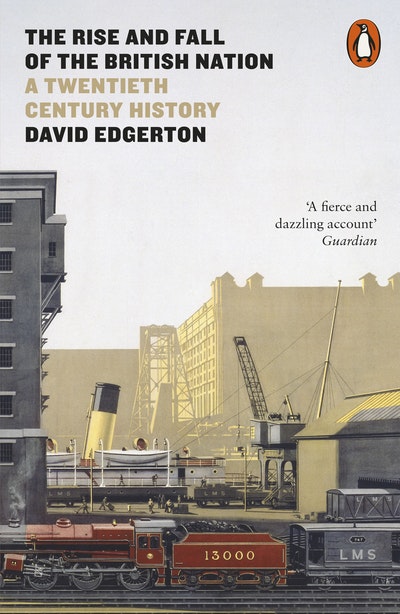- Published: 4 June 2019
- ISBN: 9780141975979
- Imprint: Penguin Press
- Format: Paperback
- Pages: 720
- RRP: $26.99
The Rise and Fall of the British Nation
A Twentieth-Century History
- Published: 4 June 2019
- ISBN: 9780141975979
- Imprint: Penguin Press
- Format: Paperback
- Pages: 720
- RRP: $26.99
An extraordinary revisionist study of modern Britain ... Edgerton's aim here is nothing short of a radical repositioning of our sense of ourselves as a nation. It's a startling book, and an unexpected thesis ... I'll be reading [it] over and over, and for years to come.'
Brian Morton, The Herald
A fierce and dazzling account of 20th-century Britain
Christopher de Bellaigue, Guardian
Forget almost everything you thought you knew about Britain in the 20th century ... You will not find a better informed history of this country in the last century.
David Goodhart, Evening Standard
Stimulating and bracing ... He demonstrates that the story the British tell about themselves - and how it is taught in schools and discussed in the public sphere - is bogus.
Iain Martin, The Times
Unsentimental and rigorous rewriting of British history. ... It looks beyond the froth of political debate, takes business seriously and analyses government as much from Whitehall and administration as Westminster and politics.
A. W. Purdue, Times Higher Education
Every so often a book comes out that the entire political class needs to read ... Edgerton is Britain's most exciting and arresting late-modern historian ... Thanks to this rich and compelling book, we now have a proper map and compass.
Colin Kidd, New Statesman
Beautifully written and can be read with pleasure by the general reader as well as the trained historian
Vernon Bogdanor, Daily Telegraph
Original, opinionated, scholarly, complex and immensely stimulating ... this ambitious and provocative book achieves something remarkable. It provides a striking new perspective on our past, one that future historians may not accept but will be unable to ignore.
Piers Brendon, Literary Review
A sweepingly, and ambitiously, revisionist account of 20th century British history ... full of striking lines ... and a very important challenge to much of the existing historiography.
Duncan Weldon, Progressive Review
Timely jolt to a deluded 'Bullshit Britain'. David Edgerton fillets national delusion and historical amnesia ... of a country that knows so little of its own history.
Chris Kissane, Irish Times
Edgerton is an extraordinary historian ... Written with bracing élan, Rise and Fall generates insights at every turn. Edgerton set out to rattle "the cage of clichés which imprison our historical and political imaginations", and succeeds magnificently.
Nick Pearce, OpenDemocracy
... refreshing and immensely stimulating, and should be compulsory reading for anyone wanting to understand the reality of twentieth-century Britain. Lewis Namier, another historian known for his combative brand of scholarship, viewed iconoclasm as the judge of a great historian, that having produced an account of a period 'others should not be able to practise within its sphere in the terms of the preceding era'. Edgerton has certainly achieved this.
Oliver Hadingham, History




